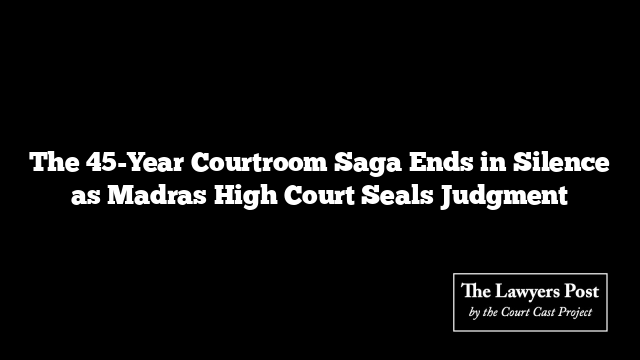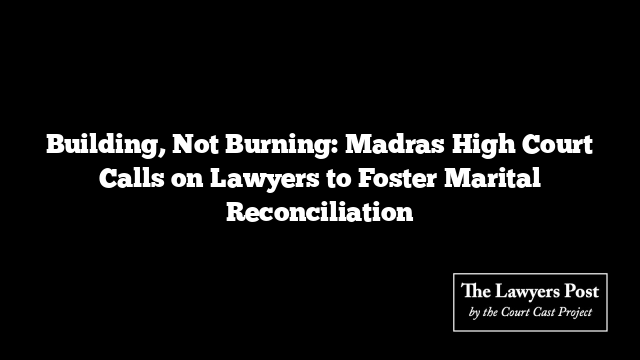A suit lodged back in 1979 finally reached its conclusion at the Madras High Court, but not through a ruling. After four and a half decades of legal limbo, the two parties in the dispute decided to settle — sparing the court from unveiling a prepared judgment that now remains forever sealed.
Justice D. Bharatha Chakravarthy, who had kept a “sealed cover” judgment ready, acknowledged the parties’ decision to settle, making the document permanently inaccessible. Instead, the court accepted a joint compromise memo filed by both parties, leaving the judgment’s details undisclosed for eternity.
Reflecting on this lengthy case, Justice Chakravarthy remarked on the importance of addressing longstanding cases, no matter how much time has passed. Courts should neither push these cases aside with repeated adjournments nor rush through them hastily. Each deserves a balanced, thorough approach to reach a legal endpoint, he said, recognizing that “old matters require a little detailed pendency hearing.”
The 45-year-old suit, involving a dispute between a landlord and a tenant, had already seen a dramatic procedural turn earlier this year. In July, Justice Chakravarthy took the unusual step of invoking Section 24 of the Code of Civil Procedure to transfer the case from a Virudhunagar district court to the High Court, noting that what had taken decades might have been resolved within 20 to 30 hours of active judicial time.
In less than two months, the High Court completed the trial. The core issues in the suit were straightforward: confirming the end of the tenancy, determining if the tenant had rights to purchase the property, and deciding any compensatory terms if eviction proceeded. Ultimately, on November 5, the parties agreed to vacate the premises, with the landlord paying ₹26 lakh to the tenant’s heirs as part of the settlement.
The case’s swift close in court after such an extended delay emphasizes the need for all judicial systems to navigate protracted cases toward a clear resolution, even if — as in this instance — the final judgment remains locked away.





